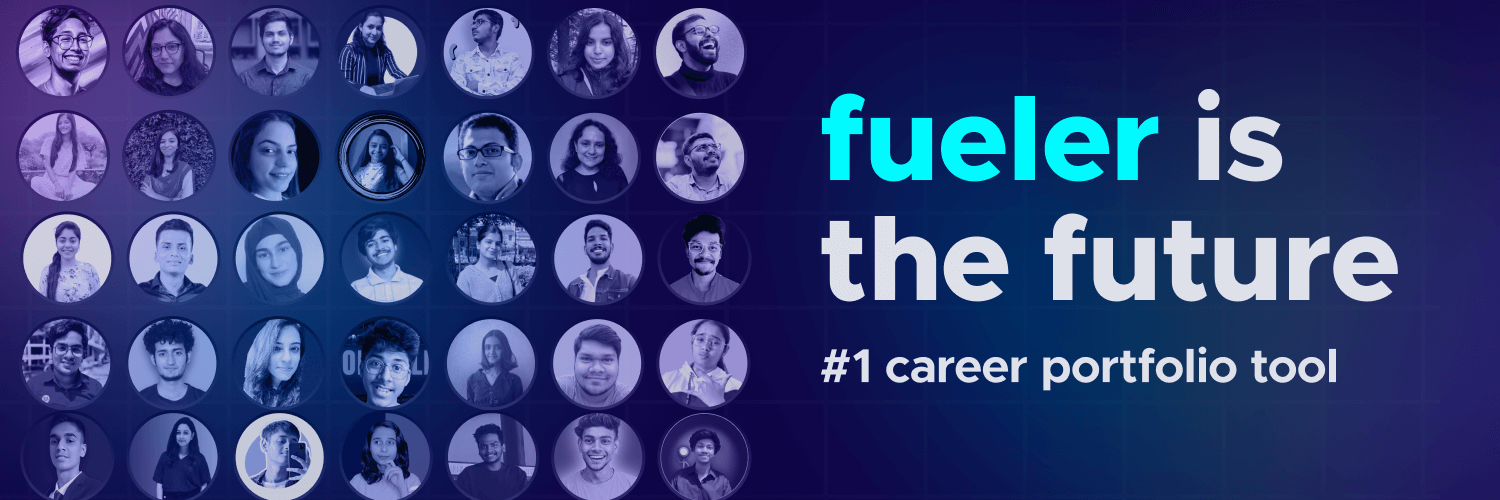2025 Coding Trends: AI, Voice, & Stress-Free Dev

Riten Debnath
20 Apr, 2025

As we navigate through 2025, the software development landscape continues to evolve at a remarkable pace. As the founder of Fueler, I've had the opportunity to observe these changes firsthand through our platform that connects developers with companies through assignment-based hiring.
Let me share the most significant coding trends that are reshaping how we build software this year.
AI-Assisted Development: Beyond Code Completion
Artificial intelligence has transformed from a helpful coding assistant to an essential development partner. In 2025, we're seeing AI tools that don't just complete your code but actively participate in the development process.
These advanced AI coding tools now:
- Suggest entire architectural approaches based on your project requirements
- Automatically generate test cases with near-human intuition about edge cases
- Refactor existing codebases with minimal human supervision
- Detect potential security vulnerabilities before they become problems
I've witnessed this transformation through Fueler's assignment platform. Developers who skillfully collaborate with AI tools consistently deliver higher quality solutions faster. However, the most successful developers aren't those who rely entirely on AI, but those who know how to guide these tools effectively.
"The developer's role is evolving from writing every line of code to being a director of AI capabilities," I often tell our Fueler community. "Understanding how to prompt, review, and refine AI-generated code is becoming as important as writing code from scratch."
Voice-Driven Programming: Coding Beyond the Keyboard
Voice interfaces have finally reached a maturity level where they're becoming practical for everyday coding tasks. Voice-driven programming solutions in 2025 allow developers to:
- Navigate codebases using natural language commands
- Write simple functions and methods through dictation
- Debug by asking questions about execution flow
- Document code through conversational interfaces
This trend is particularly important for accessibility. At Fueler, we've seen talented developers with mobility challenges excel using these technologies. Voice-driven programming is also changing how developers work in general, allowing for more flexible development environments beyond the traditional desk setup.
The most effective voice programming setups combine voice commands with traditional input methods, creating a hybrid approach that leverages the strengths of both. I personally use voice commands for repetitive tasks and documentation while relying on keyboard input for complex coding logic.
Low-Stress Development: Wellbeing as a Technical Priority
Perhaps the most significant shift I've observed is the industrywide focus on developer wellbeing. The "hustle culture" that dominated software development for decades is giving way to sustainable practices that recognize developers as humans first.
Major components of this trend include:
- Development environments designed to reduce cognitive load
- Tools that enforce healthy work boundaries
- Documentation approaches that acknowledge human memory limitations
- Team structures that prioritize deep work over constant availability
At Fueler, we've built our assignment-based approach around these principles. When developers can focus on solving well-defined problems without the pressure of always-on availability, they produce significantly better results.
"We've found that companies who emphasize developer wellbeing in their assignments attract better talent and get better solutions," I often explain to businesses using our platform. "The old model of expecting developers to be coding machines is not just humanly unsustainable—it produces worse code."
Web Components: The Standard Beyond Frameworks
While frameworks continue to evolve, 2025 has seen web components emerge as the dominant approach for building sustainable web applications. The constant "framework churn" of previous years is finally slowing as developers embrace more standardized approaches.
Web components offer several advantages:
- Framework-agnostic reusability
- Better long-term maintenance prospects
- Improved performance through browser-native implementation
- Simplified onboarding for new team members
Through our assignment platform at Fueler, I've noticed companies increasingly requesting solutions built with web components rather than specific frameworks. This shift reflects a broader industry trend toward code that can stand the test of time rather than following the latest trends.
Edge Computing: Development Moves Closer to Users
Edge computing continues to gain momentum, with more applications running logic closer to end users rather than in centralized cloud environments. This shift affects how developers structure their applications and which tools they prioritize.
Key aspects of edge development in 2025 include:
- Distributed data synchronization patterns
- Offline-first approach to application design
- Increased focus on client-side security
- Tools optimized for edge deployment and monitoring
When we create assignments on Fueler that involve edge computing, we find developers need to demonstrate a different mindset. The most successful solutions embrace the constraints of edge environments rather than fighting against them.
WebAssembly: The Universal Runtime Matures
WebAssembly (Wasm) has finally realized its promise as a universal runtime environment. In 2025, Wasm has moved beyond the browser to become a standard deployment target for all kinds of applications.
Developers are now using WebAssembly for:
- Portable server-side applications
- Edge function deployment
- Cross-platform desktop applications
- Embedded systems development
I've been particularly excited to see this trend unfold through Fueler's platform. Developers who master WebAssembly can now apply their skills across traditionally separate domains, breaking down the barriers between frontend, backend, and systems programming.
API-First Development: Composition Over Creation
The explosion of specialized APIs has changed how developers approach problem-solving. Rather than building every component from scratch, modern development increasingly involves composing existing services into cohesive solutions.
This shift means successful developers need to master:
- API discovery and evaluation
- Secure API integration patterns
- Performance optimization for multi-service architectures
- Fallback strategies for API dependencies
At Fueler, I've noticed that our most successful developers aren't necessarily those who write the most code, but those who can effectively evaluate and integrate the right APIs for each use case.
Real-Time Collaboration: Development as a Social Activity
The final trend worth highlighting is the rise of truly collaborative development environments. Beyond simple code sharing, these tools enable multiple developers to work together in the same codebase simultaneously.
Important aspects of this trend include:
- Real-time code editing with multiple participants
- In-editor video and voice communication
- Shared debugging sessions
- Collaborative code reviews
We've integrated some of these features into Fueler's assignment platform because we believe that coding is increasingly becoming a social activity. The stereotype of the isolated programmer working alone is giving way to a more connected development process.
Conclusion
As we continue through 2025, these trends are reshaping what it means to be a developer. At Fueler, we're constantly adapting our platform to help companies and developers connect through assignments that reflect these changing realities.
The most successful developers aren't necessarily those with the deepest knowledge of any particular language or framework, but those who can adapt to these evolving trends while maintaining a balanced, sustainable approach to their craft.
Frequently Asked Questions
What AI coding tools are leading the industry in 2025?
The most powerful AI coding assistants now include GitHub Copilot Advanced with its architectural design capabilities, Amazon CodeWhisperer Enterprise which specializes in cloud-native development patterns, Google's DeepCode which excels at refactoring and optimization, and OpenAI's DevGPT which offers conversational debugging. The key differentiator is no longer just code completion but rather specialized capabilities that support different aspects of the development lifecycle.
How can developers balance using AI tools while maintaining their coding skills?
I recommend the "AI plus deliberate practice" approach: use AI tools for productivity on routine tasks while setting aside dedicated time for manual coding in areas you want to strengthen. Regularly challenge yourself to understand the AI's output by rewriting key components from scratch. Participate in coding challenges without AI assistance at least weekly, and contribute to open source projects where you can receive human feedback on your code.
What programming languages are most in-demand for 2025 job opportunities?
Python continues to lead for its versatility across AI, data science, and backend development. Rust has seen tremendous growth for systems programming and performance-critical applications. TypeScript remains essential for frontend and full-stack roles. For specialized fields, languages like Kotlin for Android, Swift for iOS, and Go for cloud infrastructure are particularly valuable. At Fueler, we see these languages consistently appearing in high-paying job assignments.
How are companies measuring developer productivity in 2025?
The most forward-thinking companies have moved away from lines of code or commit frequency metrics. Instead, they focus on business impact measurements (feature adoption, stability metrics, performance improvements), team collaboration indicators (knowledge sharing, code review quality), and delivery predictability (meeting commitments, estimation accuracy). Many also incorporate developer satisfaction and wellbeing metrics, recognizing that sustainable productivity depends on preventing burnout.
What skills should self-taught developers focus on to be job-ready in 2025?
Beyond core programming knowledge, prioritize learning collaborative development workflows (Git with advanced features, CI/CD pipelines), cloud deployment patterns, security best practices, and API integration techniques. Equally important are "soft skills" like technical communication, estimation, and remote collaboration. On Fueler, we've found that candidates who complete assignments demonstrating these broader skills consistently receive more job offers than those who focus solely on technical implementation.
What is Fueler Portfolio?
Fueler is a career portfolio platform that helps companies find the best talents for their organization based on their proof of work.
You can create your portfolio on Fueler, thousands of freelancers around the use Fueler to create their professional-looking portfolios and become financially independent. Discover inspiration for your portfolio
Sign up for free on Fueler or get in touch to learn more.


